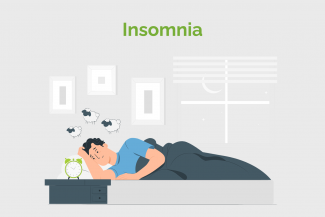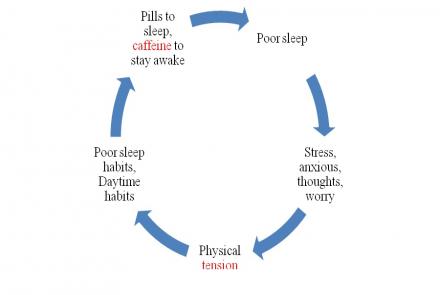
Your doctor will likely diagnose insomnia based on your medical history, sleep histories, physical exam and sleep study.
Medical History:To find out what's causing your insomnia. The doctor may ask whether you:
- Have any new or ongoing health problems
- Have painful injuries or health conditions, such as arthritis
- Take any medicines, either over-the-counter or prescription
- Have symptoms or a history of depression, anxiety or psychosis
- Are coping with highly stressful life events, such as divorce or death
Sleep History: To get a better sense of your sleep problem, the doctor will ask you for details about your sleep habits:
- How often you have trouble sleeping and how long you've had the problem
- When you go to bed and get up on workdays and days off
- How long it takes you to fall asleep, how often you wake up at night, and how long it takes to fall back asleep
- Whether you snore loudly and often or wake up gasping or feeling out of breath
- How refreshed you feel when you wake up, and how tired you feel during the day
- How often you doze off or have trouble staying awake during routine tasks, especially driving
To find out what's causing or worsening your insomnia, the doctor also may ask you:
- Whether you worry about falling asleep, staying asleep or getting enough sleep
- What you eat or drink, and whether you take medicines before going to bed
- What routine you follow before going to bed
- What the noise level, lighting, and temperature are like where you sleep
- What distractions, such as a TV or computer, are in your bedroom
Physical Exam: The doctor will do a physical exam to rule out other medical problems that might cause insomnia. You also may need blood tests to check for thyroid problems or other conditions that can cause sleep problems as mentioned here.
Sleep Study: The doctor may recommend a sleep study called a polysomnogram (PSG) if he or she thinks an underlying sleep disorder is causing your insomnia. You may have to stay overnight at a sleep centre for this study. The PSG records brain activity, eye movements, heart rate and blood pressure. A PSG also records the amount of oxygen in your blood, how much air is moving through your nose while you breathe, snoring, and chest movements.









